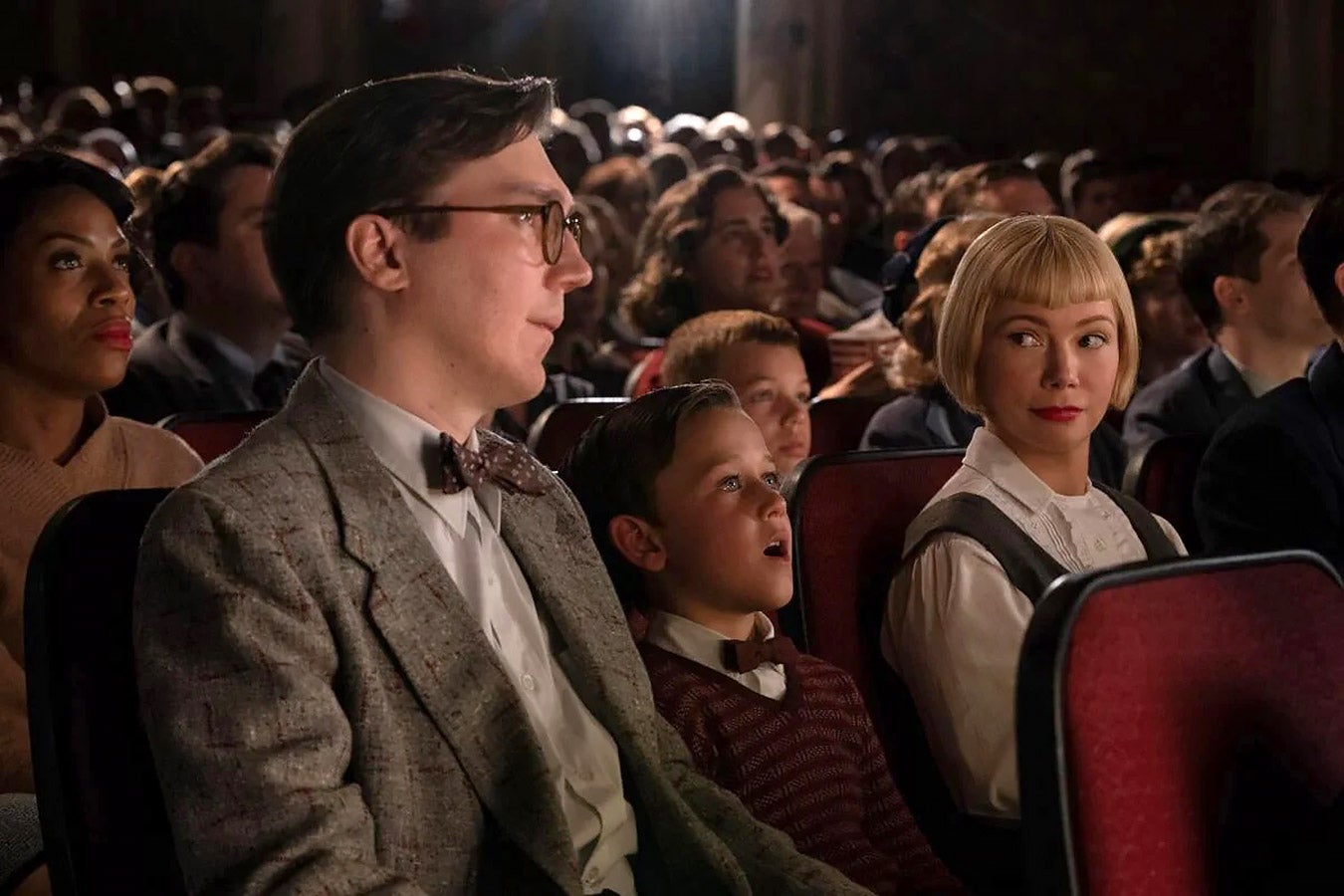Steven Spielberg, arguably America’s most seminal filmmaker, has chosen his newest movie to tell his most personal story–the story of how he became a filmmaker. While The Fabelmans is supposedly a semi-autobiographical story of his upbringing, as a Jewish-American child living in America, and how he became a celebrated and acclaimed film director, so much of this movie reflects so much reality of his past that the fact this is not an exact telling of his life is actually bewildering. But, perhaps this is Spielberg showing some personal vulnerability in that he is almost afraid to reveal himself. Regardless of this, his film is, yet again, an extraordinary achievement on his behalf.
Whether or not he wants to completely admit it. This is Steven Spielberg’s life. The Fabelmans might as well have been titled The Spielbergs, because this movie exposes his most personal experiences that molded and shaped him into the movie maker that we know and usually admire. While I hate to label his biographical film as a basic story, the fact that he gives his audience a mostly honest glimpse into who he is and how he became an extraordinary cinematic storyteller, it is a rather simple story that obviously means so much to his heart.
Basic is a word that has received such a negative connotation in our modern culture, but sometimes the simplest, most basic stories of our lives have a much bigger impact on others who have had similar experiences. The Fabelmans is Steven Spielberg’s way of coming to terms and accepting his life’s journey, and as an extraordinary that he is, he utilizes his skills in all of the best ways to express the memories and feelings he has carried with him throughout his life.
Much like Spielberg was and is, the protagonist, Sam Fabelman (Gabriel LaBelle) is a wide-eyed, optimistic, and imaginative boy and young man who became fascinated with cinema at a young age. After experiencing the wonder and magic of movies during his formative years, it becomes clear that he would love to join the ranks of Cecil B. DeMille and John Ford. However, Sam must face and deal with the problems and drama that his family provides through the troubles his parents (Paul Dano, Michelle Williams) have in maintaining a happy marriage and comfortable life for everyone in the Fabelman family.
Written and directed by Steven Spielberg, who co-wrote the screenplay with Tony Kushner, The Fabelmans is Spielberg’s most intimate film that expresses what he experienced in his youth, as an aspiring movie maker and Jewish-American in a family that has its share of troubles. It is a film that is equally poignant, heartbreaking, and triumphant. Always the optimist, Spielberg certainly shares the silver linings that lie within the problems he had in his life. At the end, it is a happy story, but one that doesn’t reflect the perfection that the artwork of Norman Rockwell romanticizes.
The entire cast is absolutely outstanding. Gabriel LaBelle is a wunderkind as the young Sam Fabelman who perfectly captures the heart and optimism of Steven Spielberg. As Burt Fabelman, Paul Dano is outstanding as the more pragmatic and scientifically-inclined father that hopes his son will be more realistic with his life goals. As the more whimsical and artistic mother Mitzi, Michelle Williams beautifully captures the heart, soul, and passion that galvanizes Sam to become the artist he desires to be. The movie also can boast fantastic performances by Seth Rogen, Judd Hirsh, and Julia Butters.
The Fabelmans is most certainly one of my favorite movies of the year. I left this movie much more enlightened and appreciative of what makes Steven Spielberg one of the more exceptional filmmakers of American cinema. While I already admired his work, I can appreciate even more the journey that shaped him and the great contributions to movie he has made.
